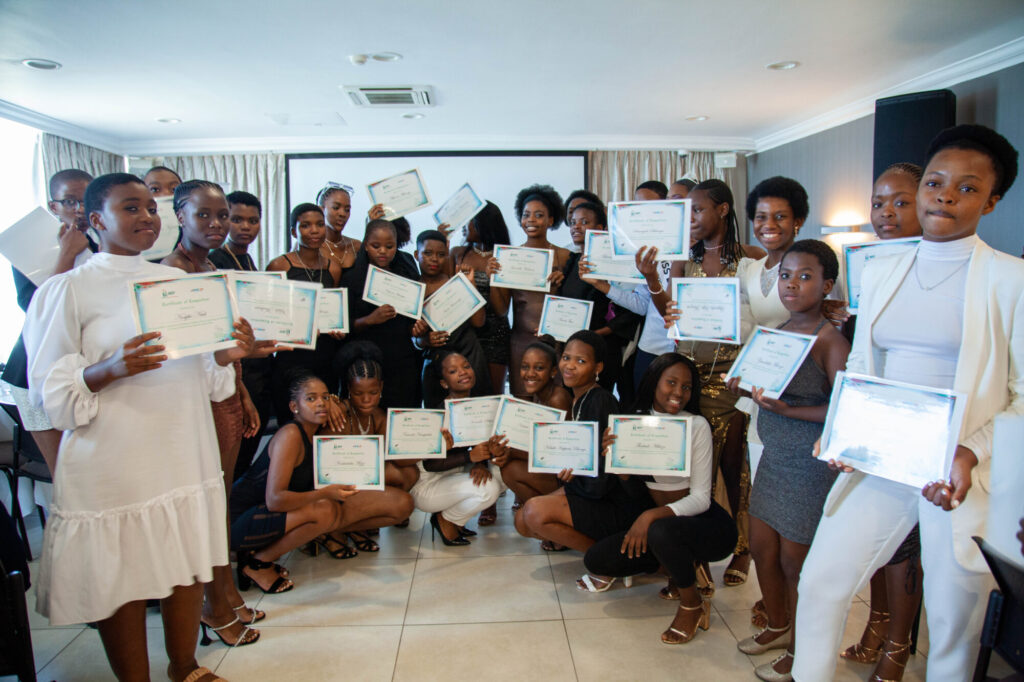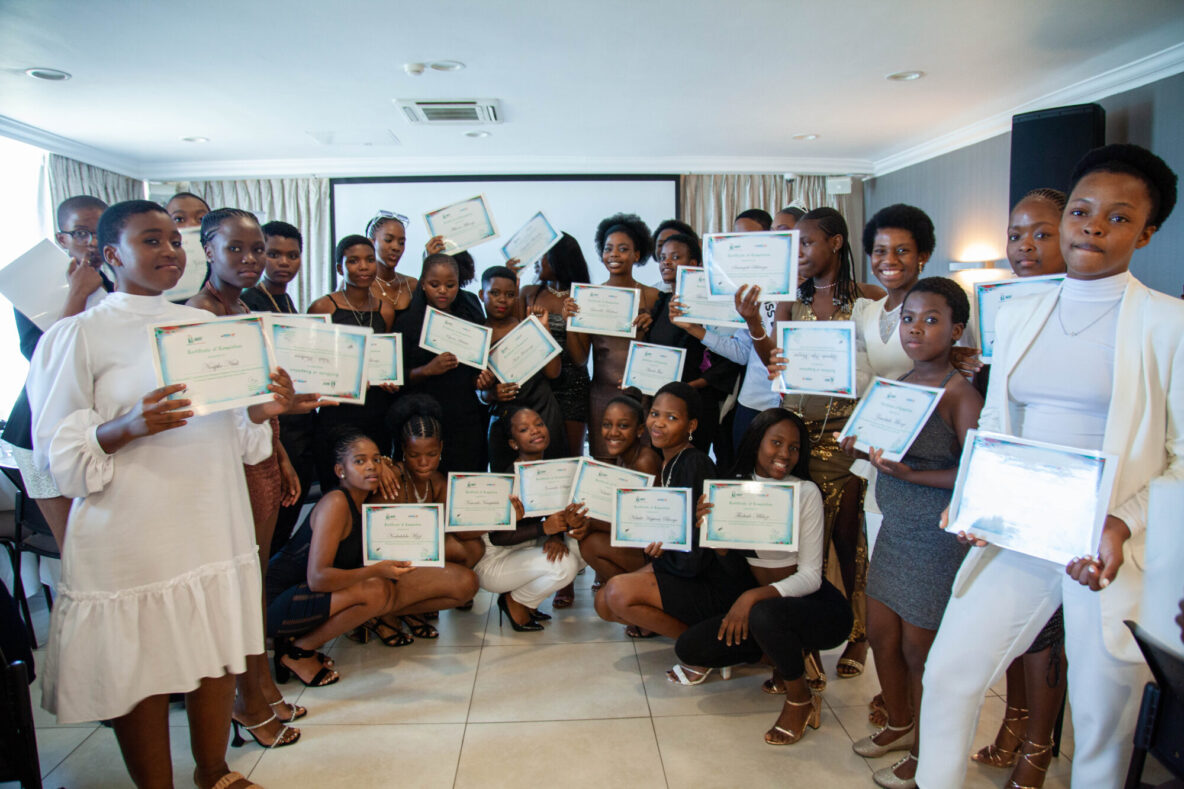
In honor of International Day of the Girl, we celebrate our wholehearted investment in girls’ rights, leadership, and well-being as integral to the advancement of global gender equity and justice. At Rise Up, girls are powerful partners in the transformation of communities and countries to create a better future for all – and the results are astonishing.
More than 700 Rise Up girl leaders over the last few years have positively impacted the lives of 8.9 million people in Africa, Latin America, South Asia, and the United States.
Rise Up Leaders remain deeply dedicated to strengthening equity in areas like access to education, sexual and reproductive health and rights, and ensuring economic opportunity through digital skills training. In 2023 alone, Rise Up Leaders have changed the lives of 75,000+ girls around the world and counting.
The need for global focus, attention, and financial investment in girls’ rights cannot be overstated.
“This year, at a time when we are seeing a range of movements and actions to curtail girls’ and women’s rights and roll back progress on gender equality, we see particularly harsh impacts on girls,” according to UNICEF. “From maternal health care and parenting support for adolescent mothers, to digital and life skills training; from comprehensive sexuality education to survivor support services and violence prevention programmes; there is an urgent need for increased attention and resourcing for the key areas that enable girls to realize their rights and achieve their full potential.”
Rise Up, in partnership with innovative and passionate Rise Up Leaders, is taking steps to address the specific challenges girls face. For example,10 million more girls are at risk of child marriage worldwide due to the COVID-19 pandemic, according to the UN. Rise Up Leader Vikram Srivastava is focused on ending child marriage in India. Vikram and his organization, Independent Thought, have challenged discriminatory provisions and pushed for better implementation of child marriage laws, ultimately protecting 1 million female adolescents. With training and support from Rise Up, Vikram’s advocacy led to the passage of an amendment to the 2006 Bill on the Prohibition of Child Marriage, which declared every child marriage performed after its passage void. You can hear directly from Vikram by attending Rise Up’s Annual Gala, taking place virtually on October 26 from 9 am – 10 am PT. Register here.
Additionally, nearly 1 in 5 girls are still not completing lower-secondary school (generally occurs between the ages of 11-14) and nearly 4 in 10 girls are not completing upper-secondary school (generally occurs between ages 14-18) today, according to UNICEF.
Rise Up’s most recent group of leaders in Nigeria are advocating for improving girls’ access to education through new or better implemented programs, policies, and laws. Girls’ education is also the primary focus of the upcoming Rise Up Leadership & Advocacy Accelerator in Kenya taking place this November.
Significant and ongoing challenges related to education access also connect to the fact that the percentage of females among Science, Technology, Engineering, and Mathematics (STEM) graduates is below 15 percent in over two-thirds of countries.
Rise Up Leader Lesego Masethe in South Africa is supporting future generations in her country through her NGO, Brain Waves Development, to create platforms and opportunities for young girls to find their place in STEM. Brain Waves Development aims to build STEM literacy and understanding in previously disadvantaged communities. Since its inception in 2015, the organization has supported almost 4,000 students through its program. You can watch highlights from our “Transforming Tech” event earlier this year featuring Lesego.
Girls are at the heart of Rise Up’s work. We will always protect and promote girls’ rights and recognize and celebrate their leadership.
This year, on International Day of the Girl, we invite you to join Rise Up’s Annual Gala, taking place virtually on October 26 from 9 am – 10 am PT to celebrate Rise Up Leaders who work tirelessly to advance girls’ rights around the world. Investing in the more than 1.1 billion girls across the globe is what we must do today and beyond if we want to achieve our vision of an equitable world.


